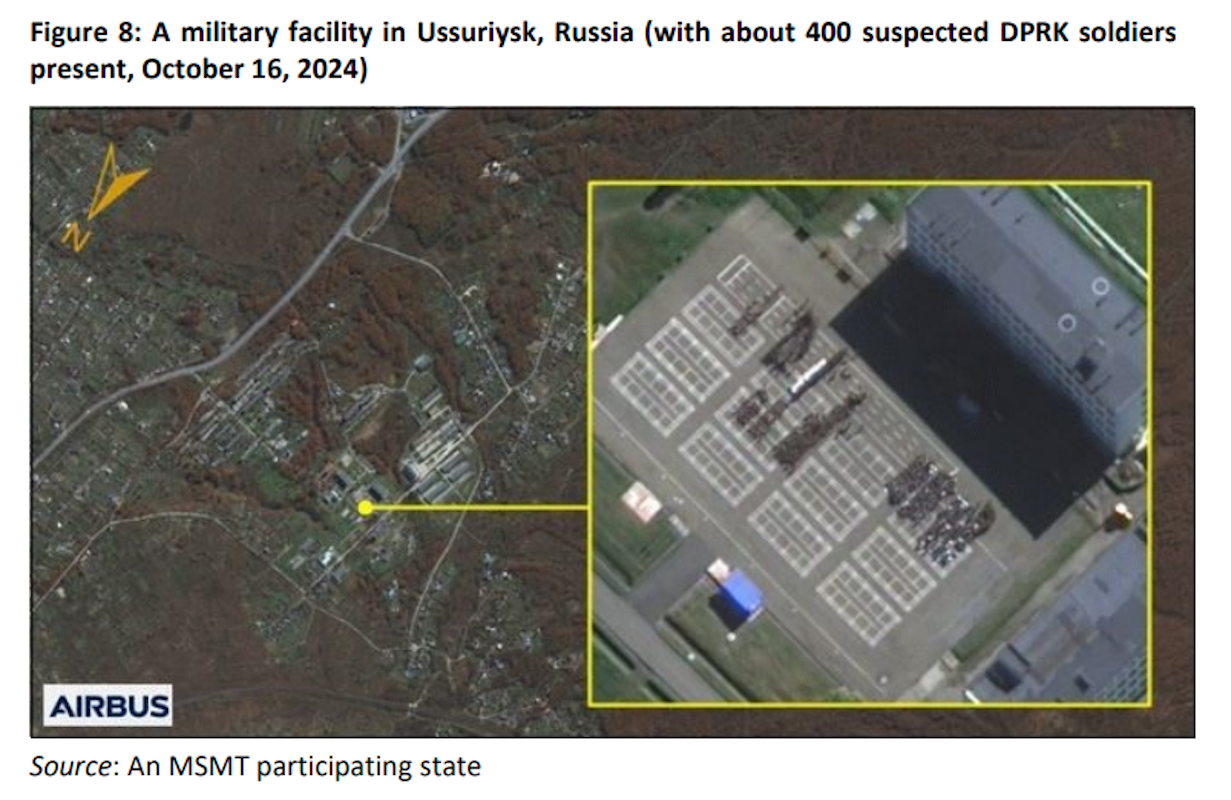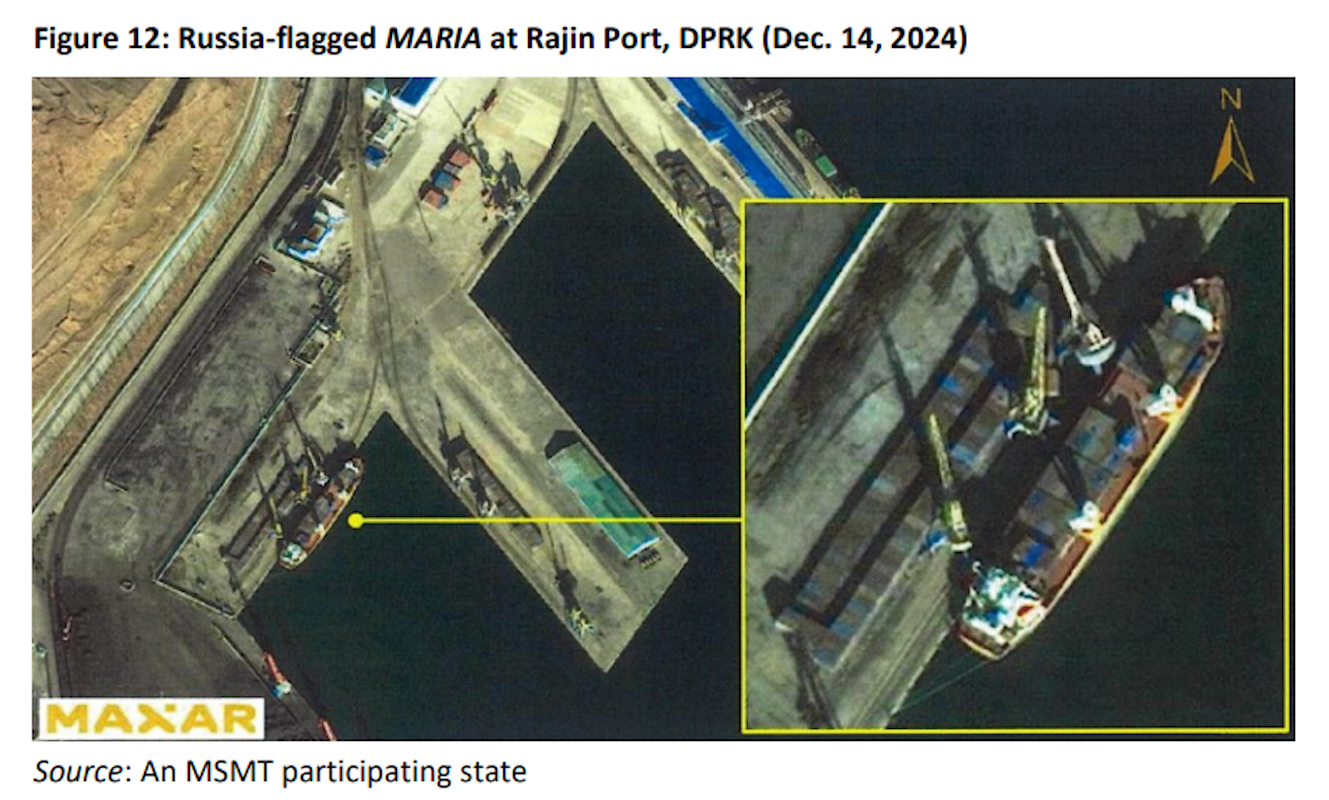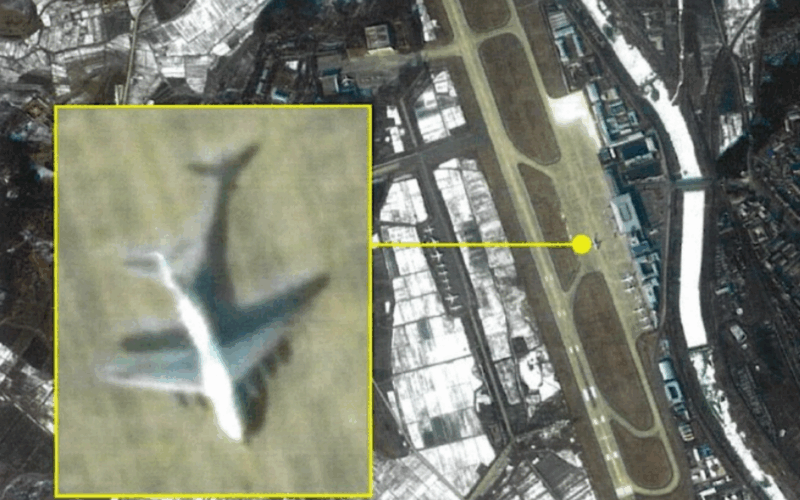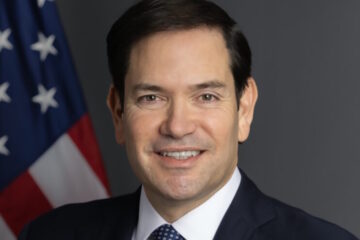Eleven countries (Australia, Canada, France, Germany, Italy, Japan, the Netherlands, New Zealand, South Korea, the UK, and the US), which are members of the Multilateral Sanctions Monitoring Group against the DPRK, have published their first report.
The report is mainly about military cooperation between North Korea and Russia, including weapons supplies. It “summarizes information from MSMT member countries on violations and sanctions evasion.”
“We urge the DPRK to engage in meaningful diplomacy, and call on all states to join global efforts to maintain international peace and security in the face of ongoing threats from the DPRK and those that facilitate its illicit activities in contravention of relevant UNSCRs,” the countries said in a joint statement.
The report contains maps of vessels movements, satellite photos of them, photos of equipment movement, etc.
According to the MSMT’s report, the DPRK deployed over 11,000 troops to eastern Russia in late 2024. These troops were moved to the far western Kursk Oblast, where they began to engage in combat operations with Russian forces in support of Russia’s war against Ukraine.

Arms transfers from the DPRK were initially carried out by rail, but later, to meet the increased demand for ammunition, Russian-flagged maritime vessels became the primary method of transportation for large-scale deliveries of these items. Sensitive and critical equipment such as missiles and transporter-erector-launchers (TELs) were mainly transported by rail or by Russian military cargo aircraft.

“The DPRK’s transfer of arms to Russia for use against Ukraine and arms transfers from Russia to North Korea: Both the DPRK and Russia are violating the DPRK-related UN arms embargo established by UNSCRs 1718 (2006), 1874 (2009), and 2270 (2016) through these arms transfers,” stated MSMT.
In October 2024, Maria Zakharova, the representative of the Ministry of Foreign Affairs of the Russian Federation, called the MSMT participants “resentful enthusiasts” and stated that the group was “aimed at further sanctioning the ‘strangulation’ of the DPRK and shaking the socio-political system of that sovereign state.”




